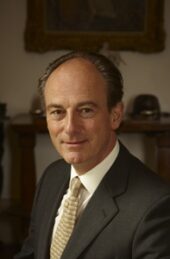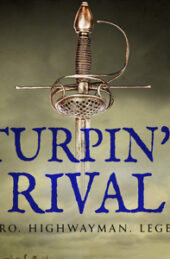What first drew you to the story of William Dodd?
I was researching Africans in eighteenth century portraits for an article I was about to write. A portrait by Gainsborough and a footnote* in the letters (number LVIII) of Ignatius Sancho stated: *Mr Sancho also wrote to Dr Dodd when in prison. Then there was reference to an earlier letter Sancho had written to The Morning Post just before Dodd’s hanging and hoping to prevent it. This letter – too long to give here summed up “…the graceful eloquence and truly Christian Doctrine of the unfortunate Dr Dodd…” and with many words of praise for the Divine then suggested that instead of being executed he could “…be of infinite service as chaplain to the poor convicts on the river…”
Other Africans’ books with portraits on their covers such as one by an unidentified artist of Olaudah Equianoa – The Interesting Narrative; Black England by Gretchen Gerzina carries a portrait by Zoffany of Dido (coloured) and her (white) cousin Lady Elizabeth the adopted daughter of The Lord Chief Justice Mansfield who would not permit a reprieve for Dodd. In these and other pages written by Africans, Thicknesse appears and is a figure lending himself to association with Dodd.
I was hooked. Research led me to Google, Dictionaries of Biography and further books including Dodd’s own sermons and books. Visits to Bourne, in Lincolnshire where Dodd’s birth and early years were reconstructed. To Clare College Library where Dodd was a sizar – a maths scholar and many other things. Then to all the parishes mentioned in Dodd’s biographies. To the gaol – now under a London pub – where Dodd lay for his last days of life and every other church and spot where Dodd had preached. The Churchyard at Uxbridge where Dodd’s body may have been laid in the graveyard on the north side of the church (where felons and suicides were buried often without markers yielded no information.
Dodd was defended by many influential people and a petition against his death received thousands of signatories. Why do you think he was so popular?
Because he was a good man who’s preaching and living life was down to earth. He had the respect of paupers and aristocrats. Sympathy was also raised for a man who was being badly treated by the Law and by many pompous men in authority.
Dodd’s wife Mary is an interesting character in her own right. How much of her story is based on historical fact?
Very little, but parallel cases are numerous. She does not she feature in many of the sources? True.
Which books or historians would you recommend books and places plus many I to readers who want to find out more about William Dodd?
All of the above have not mentioned including court cases about Dodd and biographies and the writing of other characters in the book – including Thicknesse and his third wife Ann.
Can you tell us about what you are working on next?
I am thinking about taking perhaps one of the rare fictional characters such as Miss Numerus in Chap 5 and weaving in the first person a tale about the problems of such a woman in the late eighteenth century. But you may remember I promised at the start of the first page to write an article about portraits of Africans. After all, I have done a lot of the reading for that. I will give it thought.
Anthony Lynch is the author of The Hanging of William Dodd.







